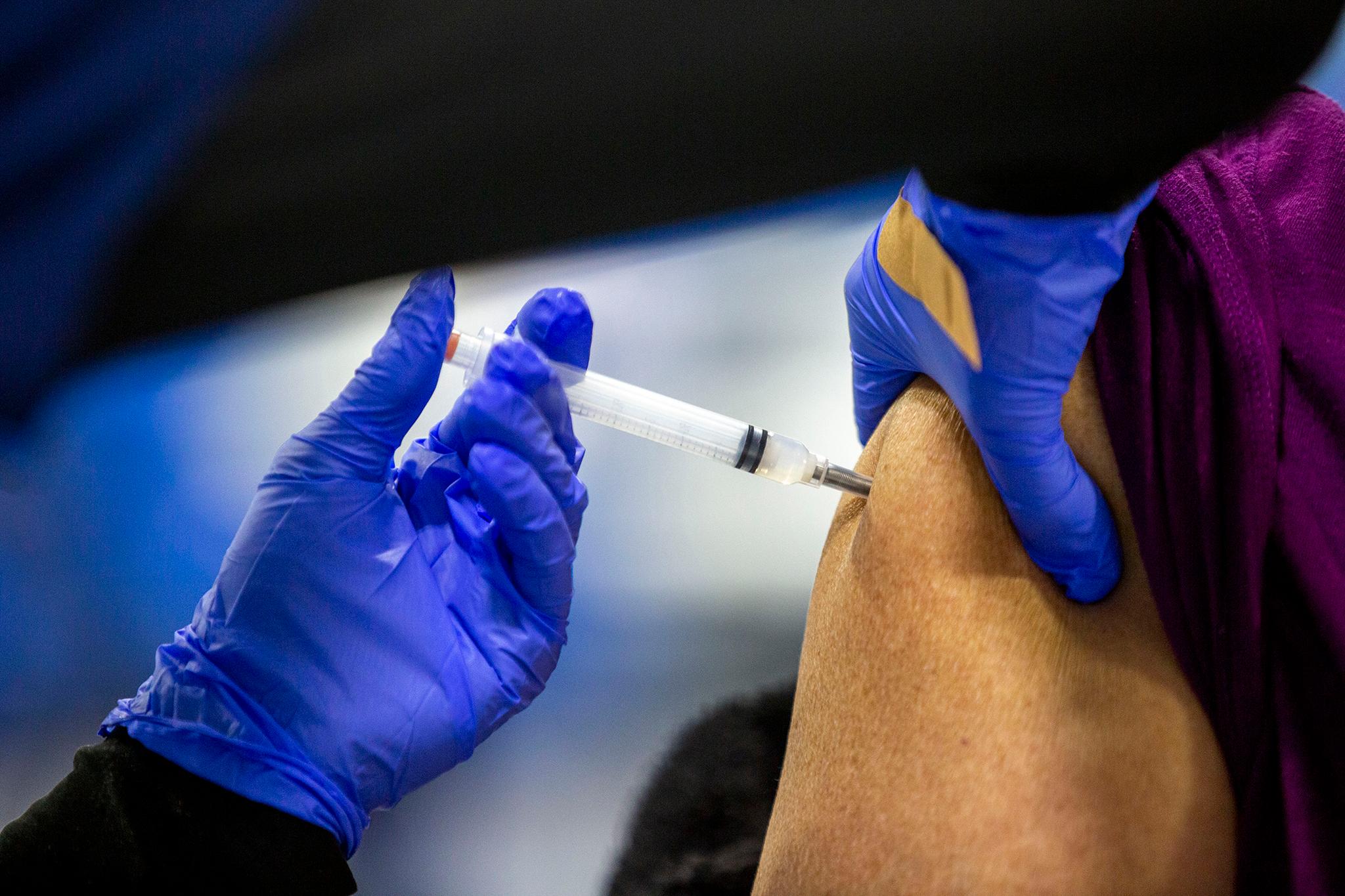Just 3.5 percent of people in Denver have received an initial COVID-19 vaccine dose, which is slightly higher than the state's average, city and healthcare officials said Thursday.
Bob McDonald, executive director of the Denver Department of Public Health and Environment, noted during a press briefing that 1.1 percent of residents have received a second dose of a COVID-19 vaccine (the two vaccines in use, from Moderna and Pfizer, require a second dose). Statewide, 3.25 percent of residents have received the first dose, while just 0.6 percent have received the second. According to McDonald, 2.8 percent of people in the United States have received at least one dose.
"I'm very confident here that numbers will start to tick up much more quickly as we roll out our vaccine plan for the city of Denver," McDonald said.
The state has focused on vaccinating people age 70 and over. More than 100,000 people were vaccinated last week alone, more than twice the previous high.
The city is still in its first vaccination phase, which in addition to elderly folks includes moderate-risk health care workers and first responders. Frontline essential workers and frontline journalists are in the second part of this initial phase. McDonald said it will take most of the spring to complete this phase.
McDonald said Denver will focus on increasing vaccination sites. This means providing vaccines at local hospitals, clinics and pharmacies, where more people will be able to get them. McDonald said more than 20 pharmacies in the city are eligible to administer a COVID-19 vaccine.
Dr. Judy Shlay of Denver Health said the city's "safety net" hospital has received more than 8,700 doses of the Pfizer vaccine and about 11,500 Moderna vaccines (for both first and second doses in both cases). The vaccines are 95 percent effective against COVID-19.
As of 11 a.m. Thursday, Shlay said the hospital has vaccinated more than 5,000 hospital health care personnel, more than 1,900 first responders, 250 community partners and more than 1,000 people aged 70 and over. She said the hospital is trying to figure out a way to get vaccines for people who aren't affiliated with the hospital system.
Mayor Michael Hancock said building trust in communities of color, especially among African-American residents, will be important in Denver's vaccine rollout due to historic mistreatment of minority populations by health care systems. People of color in Denver have faced disproportionally higher COVID-19 infection rates. Hancock signed onto a letter to President-elect Joe Biden from mayors in major cities requesting more control and flexibility over vaccines, to make sure hard-hit communities can get them. Hancock added people experiencing homelessness should also be prioritized.
Hancock reminded people to continue wearing face coverings and practicing social distancing. He noted most people will likely have to wait longer than they anticipate to get a vaccine.
"I say that to remind all of us that vaccines for a few of us does not mean immunity for the rest of us," he said.
The mayor said the city does not plan to establish a big vaccination center, though there are private businesses interested in doing that in Denver.
Denver Health's data shows vaccination rates among people 70 and older are highest in the city's wealthier neighborhoods, including Belcaro, Central Park and Lowry. McDonald said the city is exploring whether it can launch a mobile vaccine unit that would target underserved areas.
Hancock announced on Thursday that the city has been approved to join the 5 Star State Certification Program, which would allow certain businesses like restaurants to operate with fewer COVID-19 restrictions.
The city saw a post-holiday COVID-19 spike this month. If infection rates continue to rise, the city may not be able to certify businesses.













